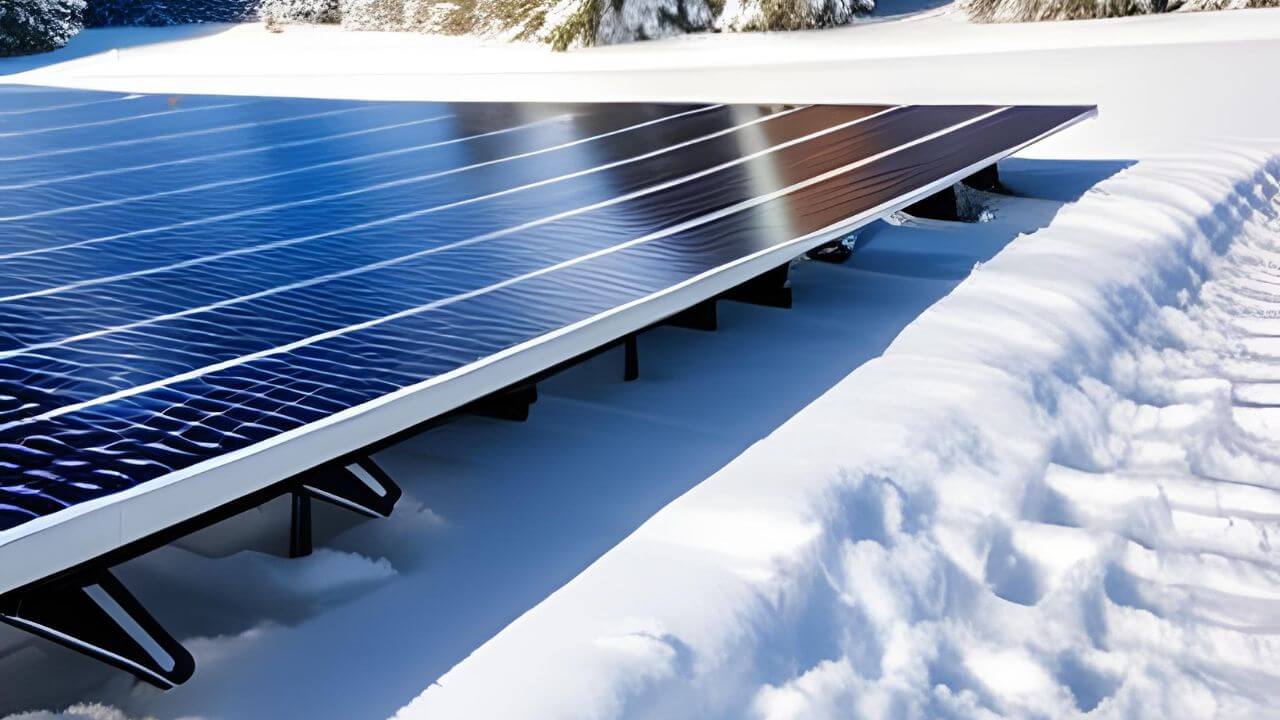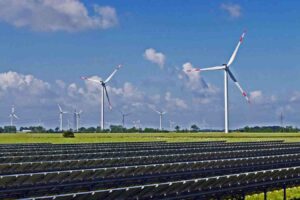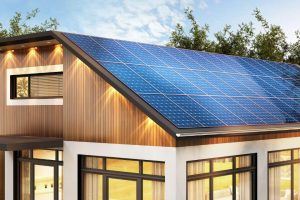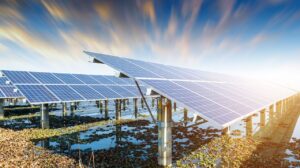Solar panels can work during winter despite common concerns about their efficiency in colder weather. While factors such as reduced sunlight exposure, snow and ice accumulation, and shorter daylight hours can impact energy production, solar panels can still provide a valuable source of renewable energy. Solar panels often demonstrate improved efficiency in colder temperatures, making them useful for meeting increased energy demands for heating and lighting in winter.
This short guide will explore the factors that impact the efficiency of solar panels in winter, the advantages of using solar panels in winter, and recommendations for optimizing their performance throughout the season.
How efficient are solar panels in winter
The performance of solar panels in the winter season can differ greatly, influenced by several factors, including the geographical location, climatic conditions, and the installation angle. Giving a universal percentage or statistic is difficult, but we can still discuss broad trends.
In areas experiencing gentler winters and extended daylight hours, like the southern parts of the United States, solar panels might retain efficiency levels nearly comparable to their output in other seasons. In these locales, the dip in energy generation may range from a mere 10-30%.
Conversely, solar panels might face a more notable dip in efficiency in locations with brutal winters, shorter daylight spans, and higher snowfall occurrences, such as in the northern parts of the United States and Canada. Here, the energy output could lessen by about 30-60% during winter.
Even with this diminished efficiency, solar panels remain a worthy renewable energy source in the winter, notably given their enhanced performance in cooler temperatures. To ensure the optimum functioning of solar panels during the winter season, adherence to guidelines for installation, timely removal of snow and ice, and routine upkeep are essential.
Factors Affecting Solar Panel Efficiency in Winter
- Decreased Sunlight Hours: Daylight hours are reduced during winter, so your solar panels can generate less power during this time. Using Google’s “Sunroof” project, you can calculate your area’s solar potential in different seasons, helping you optimize your winter solar energy strategy.
- Snow Accumulation: Winter brings snowfall that can cover solar panels, reducing their efficiency drastically. A good strategy is to install a solar panel snow removal system or to clear the panels manually to ensure uninterrupted energy production.
- Lower Solar Panel Temperatures: Interestingly, solar panels operate more efficiently in colder temperatures. In winter, the cooler ambient temperatures help improve the performance of your solar panels, potentially offsetting some of the decreases in efficiency due to fewer sunlight hours.
- Angle of Incidence: During winter, the angle of incidence – at which sunlight hits the solar panels – differs from other seasons. Adjusting the tilt of the solar panels to a more optimal angle can help maximize energy production during the winter months. Utilizing tools like Google Earth can help calculate the best angles and positioning for solar panels based on geographical location.
- Atmospheric Conditions: During winter, the atmosphere can often be cloudy, and there might be increased instances of fog and haze, affecting the sunlight reaching the solar panels.
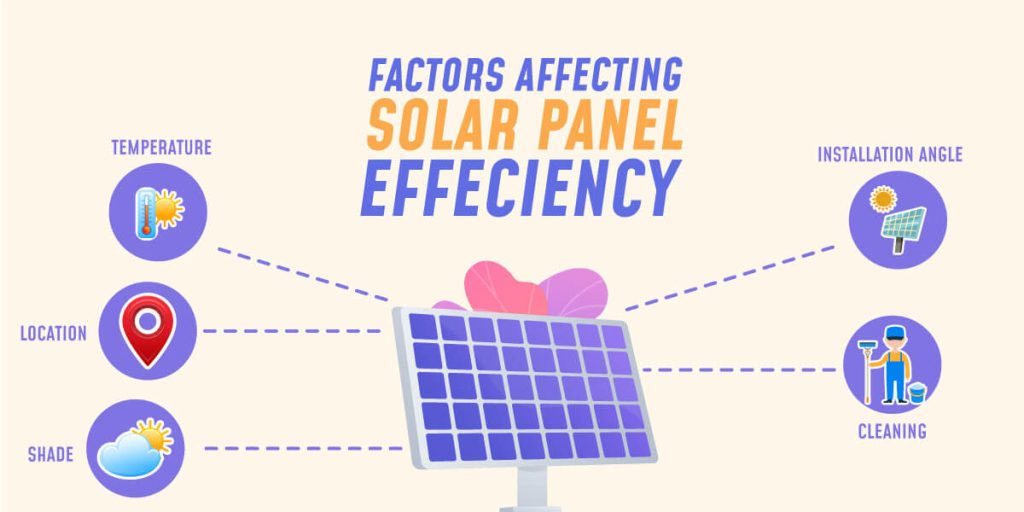
Credit: heliushub.com
Solar Panel Benefits in Winter
- A winter with short days and long nights might not seem ideal for solar energy harvesting. You might be surprised to discover that solar panels are indeed capable of thriving during the colder months. Here’s why solar panels are beneficial even in winter.
- Enhanced Efficiency in Cooler Temperatures
- Solar panels often work more efficiently in cooler temperatures despite the shorter daylight hours. The photovoltaic cells that make up the solar panels are known to conduct electricity better when they are cool. Consequently, your solar setup might produce energy more efficiently on a bright winter day than during summer heat.
- Effective Snow Reflection
- When the ground is covered in snow, the albedo effect – or the reflection of sunlight – can sometimes aid in increasing the solar irradiance the panels receive. The snow can reflect sunlight onto the panels, giving them an extra energy boost on sunny, snow-covered days.
- Year-round Sustainable Energy Source
- Installing solar panels allows homeowners and businesses to harness a year-round sustainable energy source, reducing dependence on fossil fuels even during winter. This consistent energy production approach helps reduce one’s carbon footprint, promoting sustainable living and fostering a greener future.
- Energy Independence During Winter Storms
- Power outages can occur during winter storms. With a solar panel system equipped with energy storage or off-grid capabilities, you can enjoy energy resilience, ensuring a steady power supply even when the grid goes down. This feature can be a lifesaver, keeping your home warm and appliances running during winter storms.
- Incentives and Rebates
- You may qualify for incentives and rebates if you invest in solar technology. The tax credits and savings are available year-round, providing a great opportunity to begin your renewable energy journey in the winter.
- Net Metering Benefits
- Many regions offer net metering policies, allowing you to return surplus energy from your solar panels to the utility grid. While your energy production might vary during winter, you can still benefit from these policies, reducing overall energy costs and contributing to a balanced energy grid.
- Considering the unique advantages solar panels can offer during the winter season, it becomes clear that they are a valuable investment for any homeowner aiming for energy independence and sustainability. Harness the power of the winter sun and embrace a greener, more renewable future!
Tips for Maximizing Solar Panel Performance in Winter
- Proper Installation and Angle: Ensuring that your solar panels are installed at the correct angle is crucial for maximizing sunlight exposure during winter months. The ideal angle varies depending on your location and the time of year, so consulting with a professional is recommended.
- Snow and Ice Removal: Removing snow and ice from your solar panels will aid in keeping efficiency. Use a soft brush or specialized snow rake to gently clear the panels without causing damage. Avoid using any sharp tools or applying excessive force.
- Regular Maintenance: To achieve peak performance during winter, it’s necessary to maintain solar panels regularly. This involves various tasks such as cleaning the panels, inspecting them for damage, and verifying the connections are intact. Just like with any other equipment, proper maintenance is necessary.
- Monitoring: Monitoring your solar panels’ performance regularly is recommended to promptly detect and address issues. The monitoring software with many solar systems helps you identify potential problems quickly..
FAQ
How much snow weight can solar panels hold?
Solar panels are typically developed to withstand a considerable amount of snow weight. Solar panels can hold up to 5400 Pa (Pascal) of snow load, which roughly translates to 113 pounds per square foot. This means they can generally endure heavy snowfalls without any problems. Nevertheless, the actual snow load capacity differs from panel to panel, so it’s vital to consult the manufacturer’s specifications for accurate details. Removing snow from your solar panels can help maintain efficiency and prevent potential damage.
Can cold damage solar panels?
Cold weather is unlikely to harm solar panels, as they are created to withstand a wide range of temperatures. Solar panels often operate better in colder conditions, as their efficiency decreases with higher temperatures. A National Renewable Energy Laboratory (NREL) study found that solar panel efficiency could enhance by 0.45% for every one °C decrease. However, extreme temperature fluctuations or rapid changes could cause stress on the panels and their components, but such cases are relatively rare.
Should you turn off solar panels in winter?
No, you should not turn off solar panels in winter. Solar panels still produce energy during colder months, albeit at reduced levels. By keeping solar panels active in winter, you can benefit from their enhanced performance in cold weather and continue to generate clean, renewable energy, lowering your electricity bill and reducing grid reliance.

